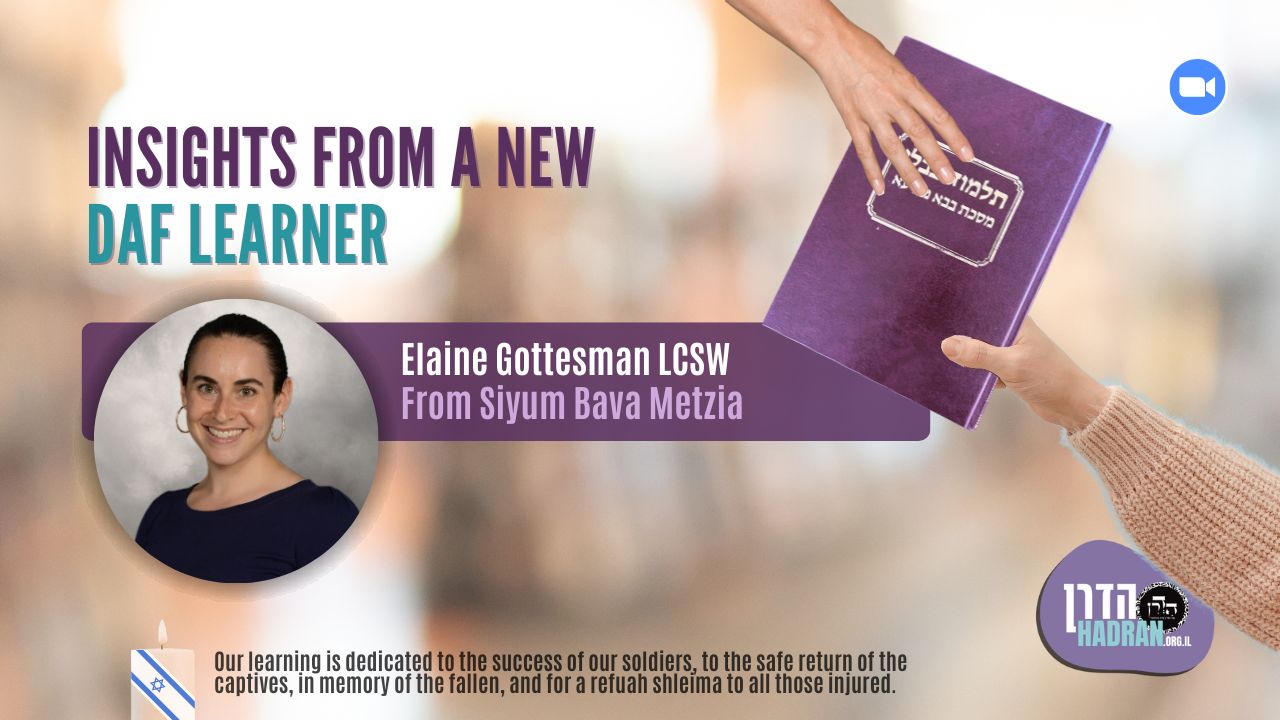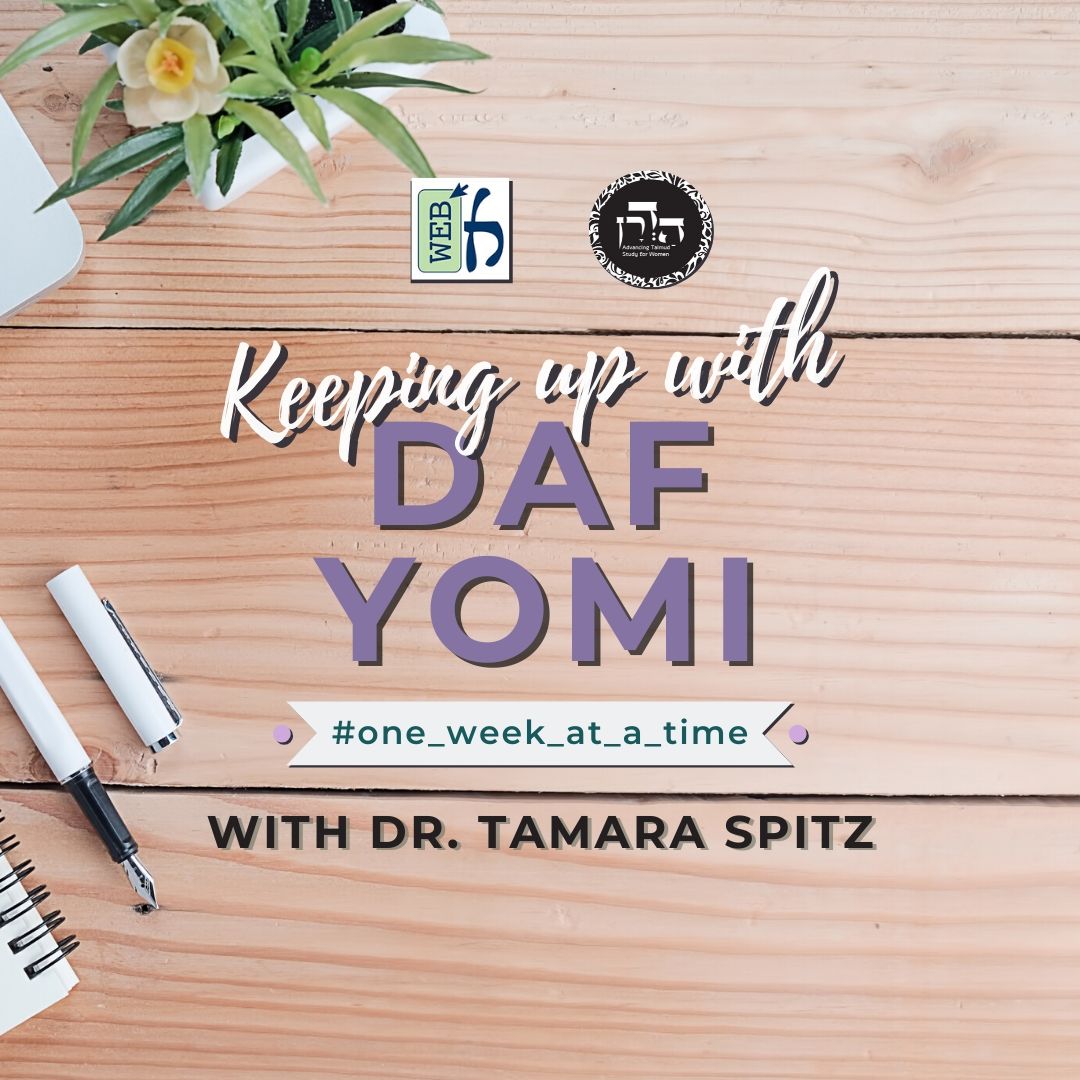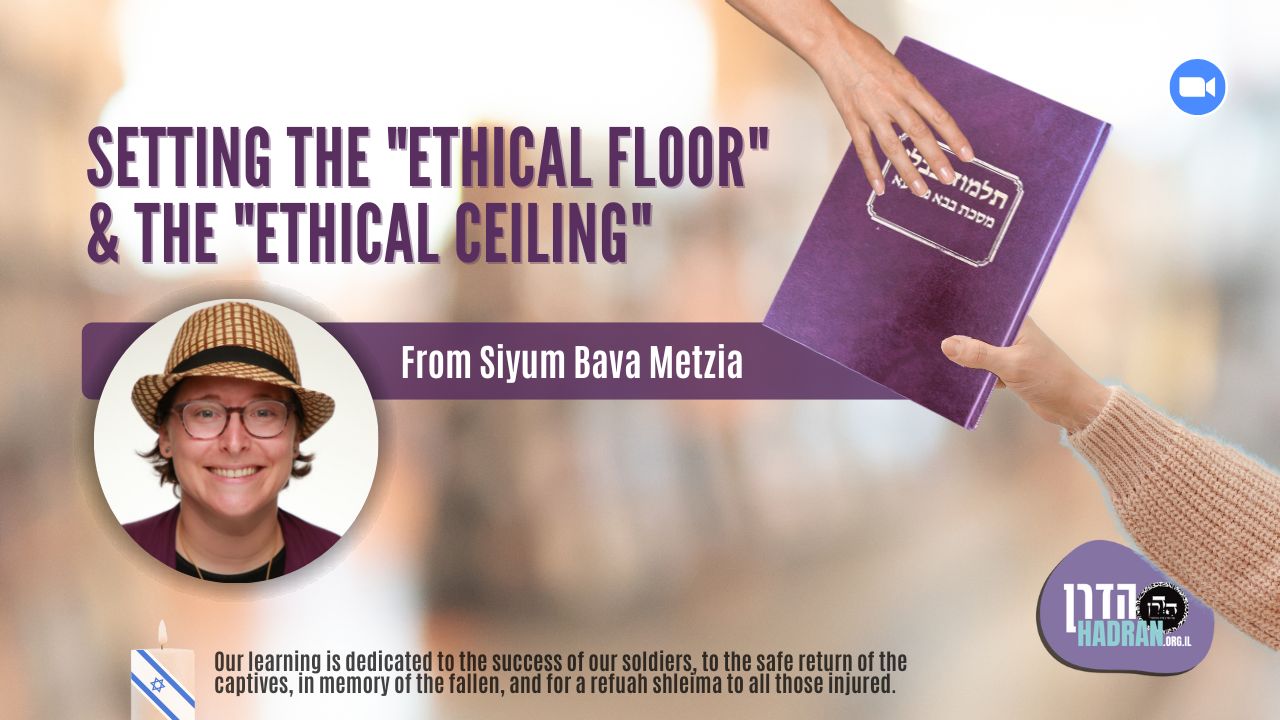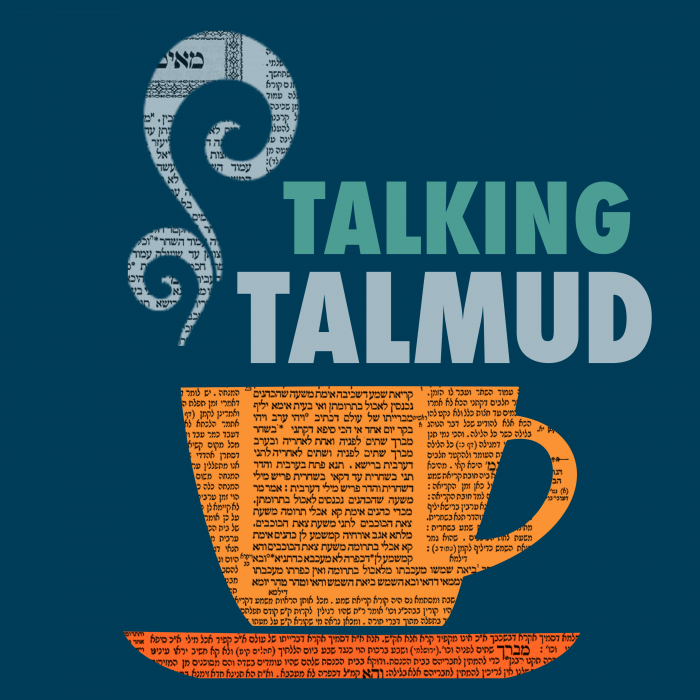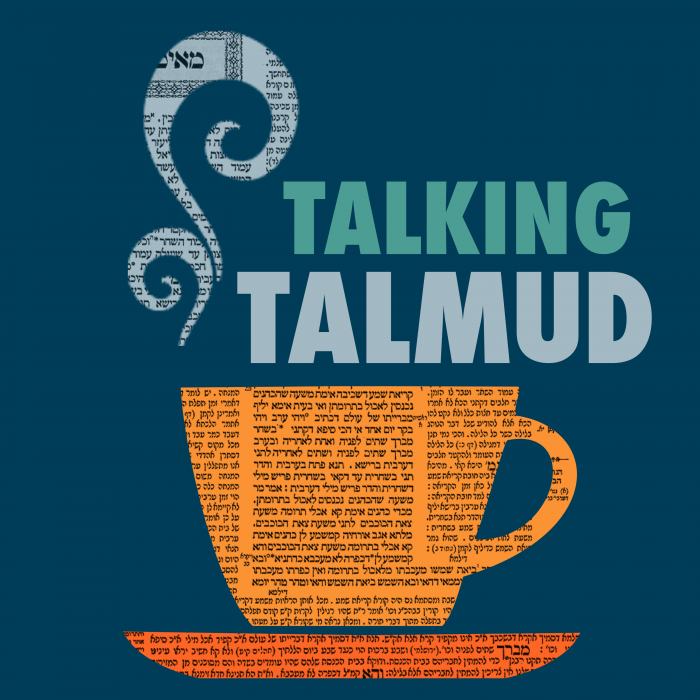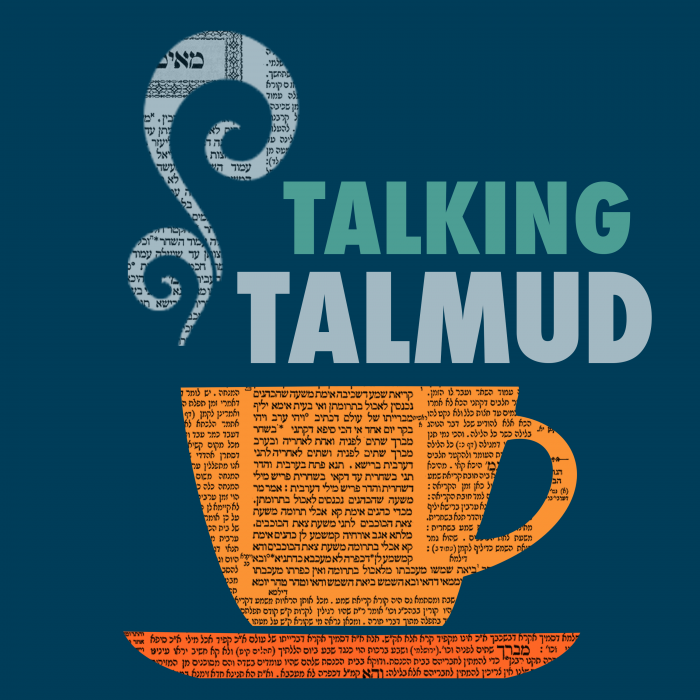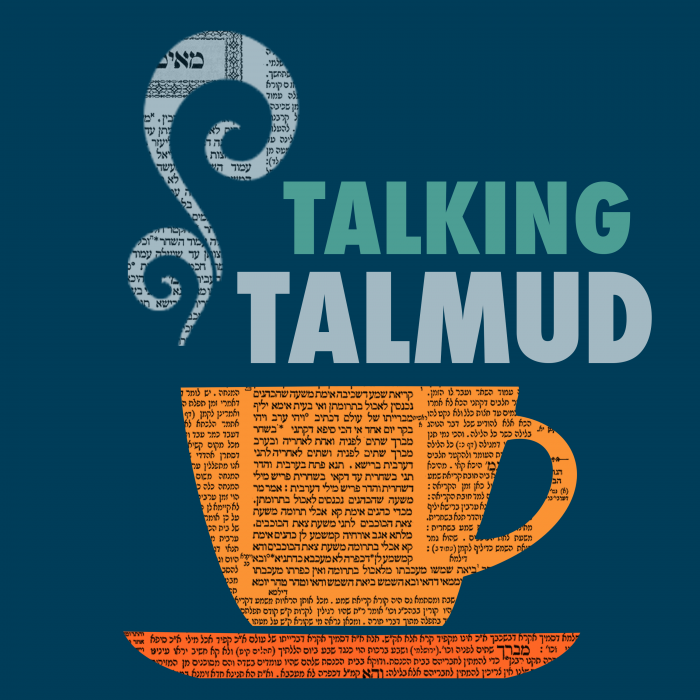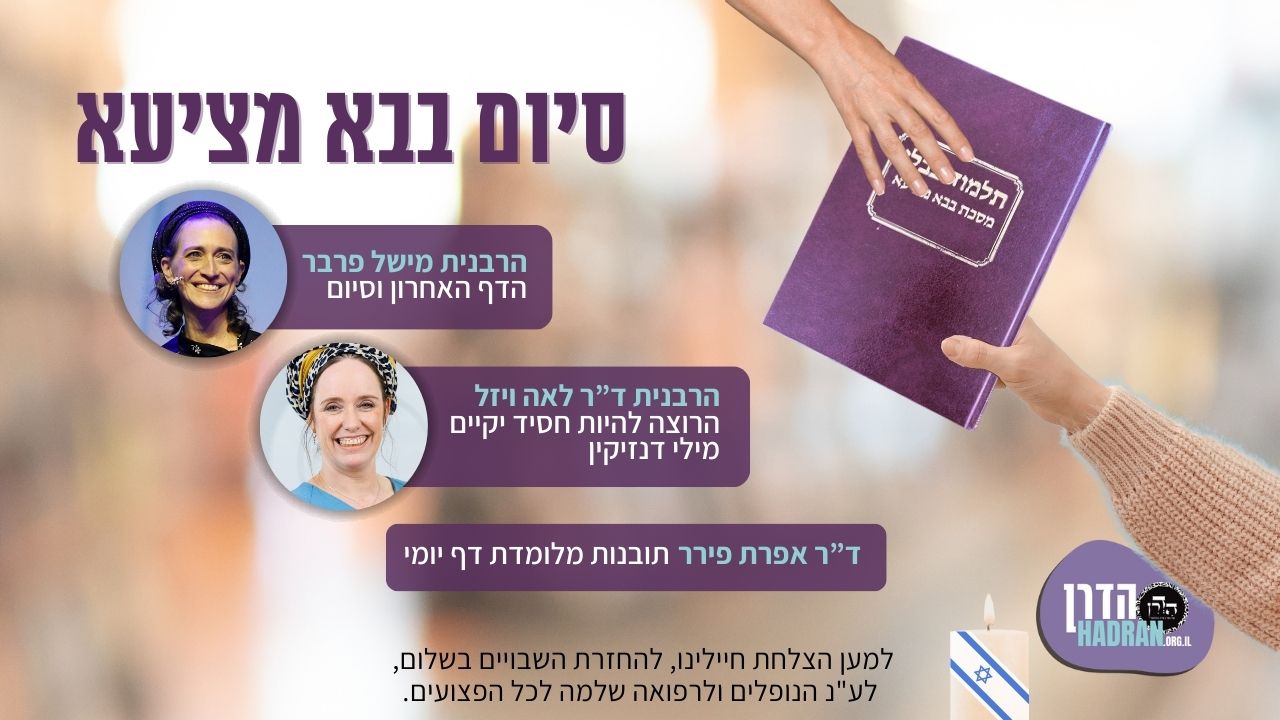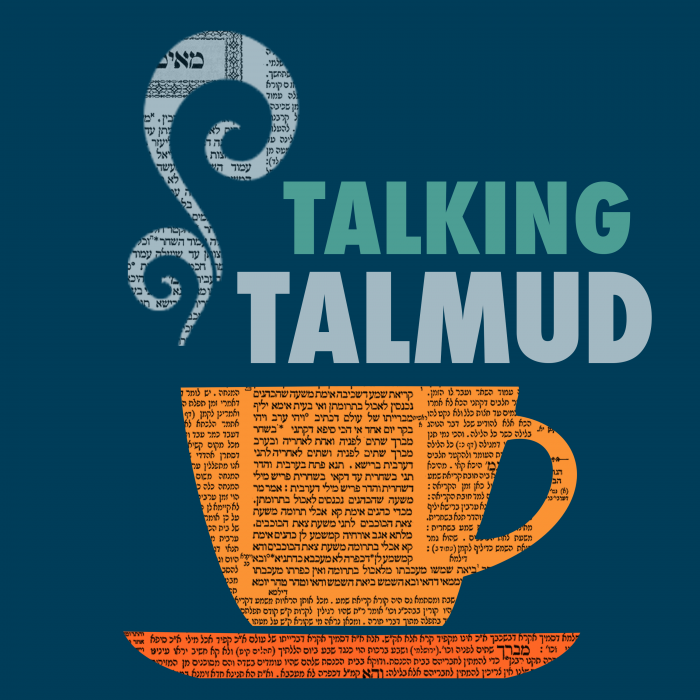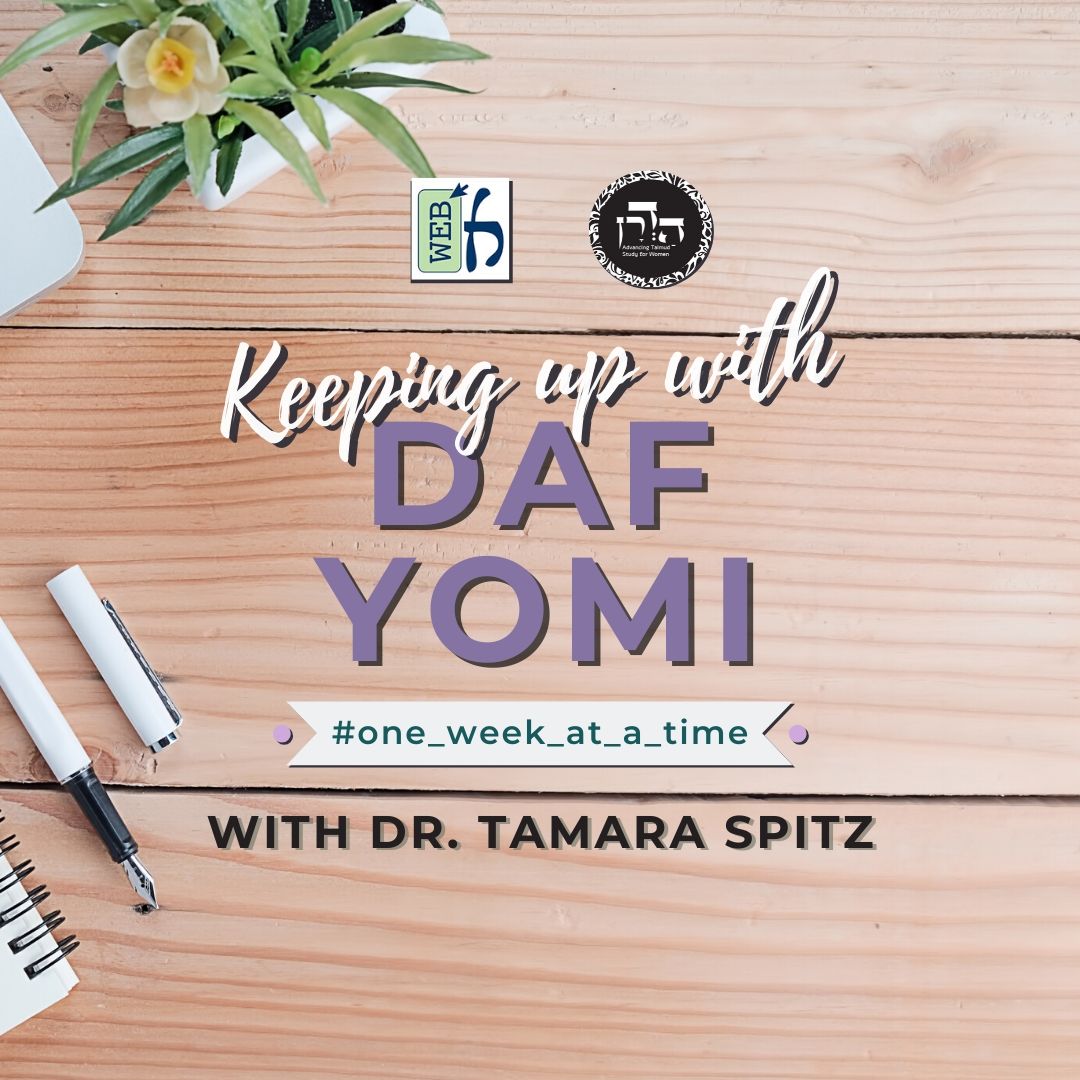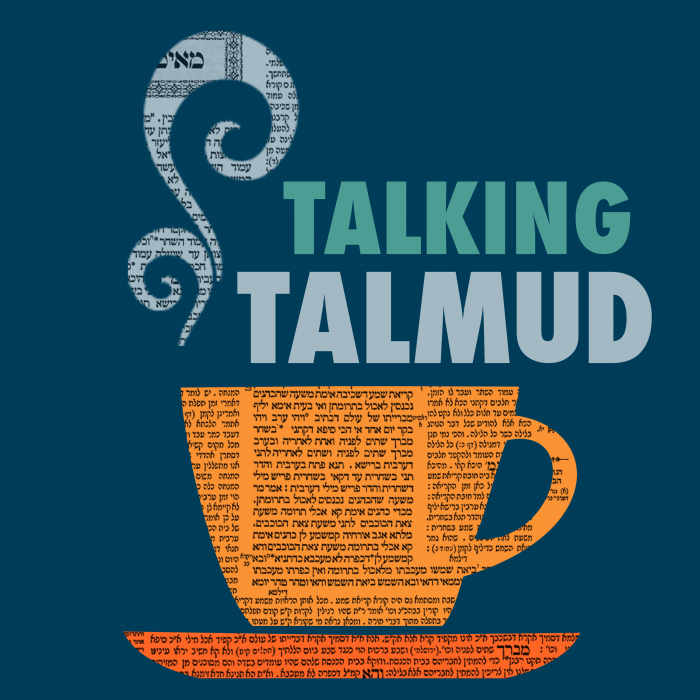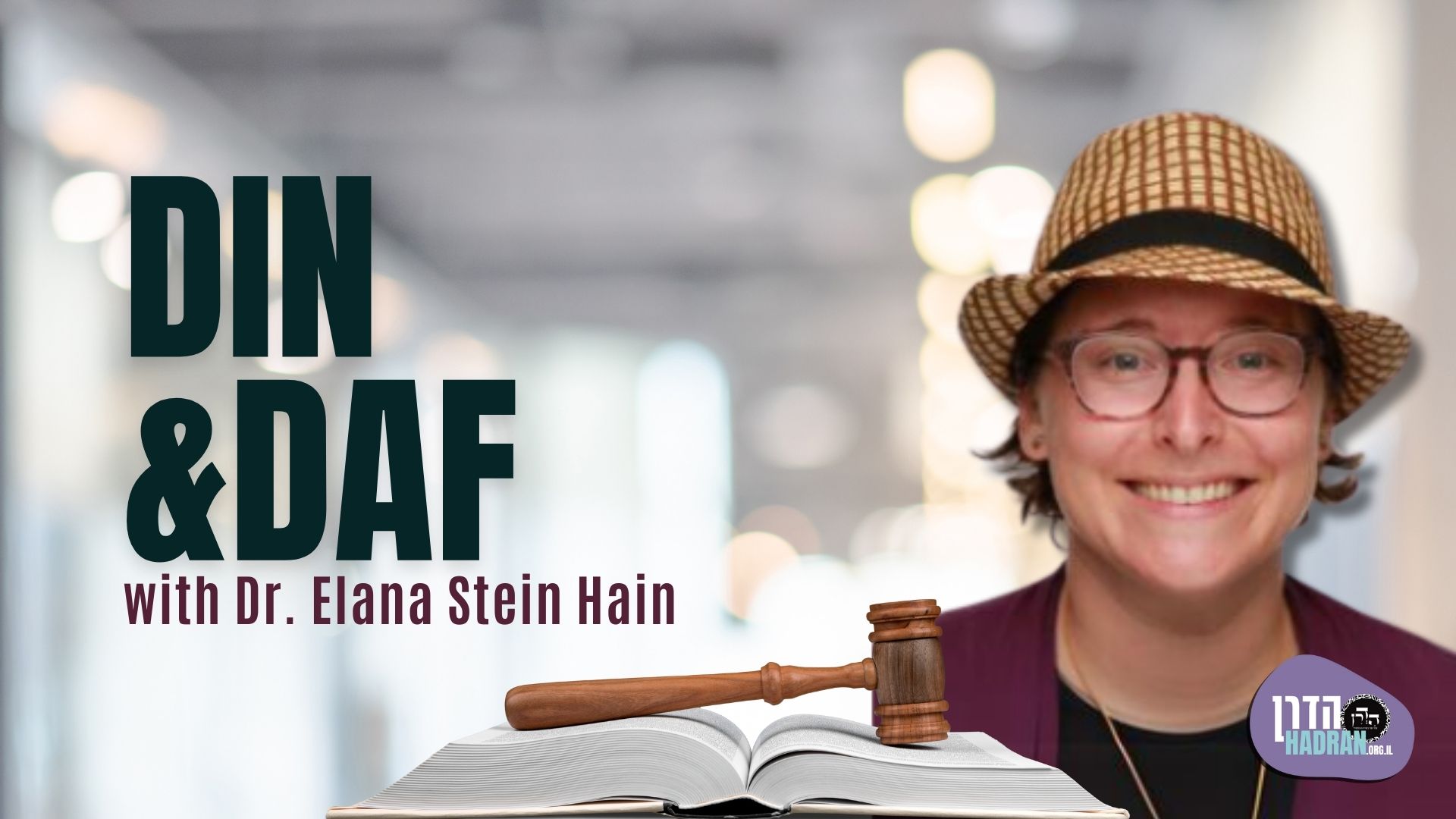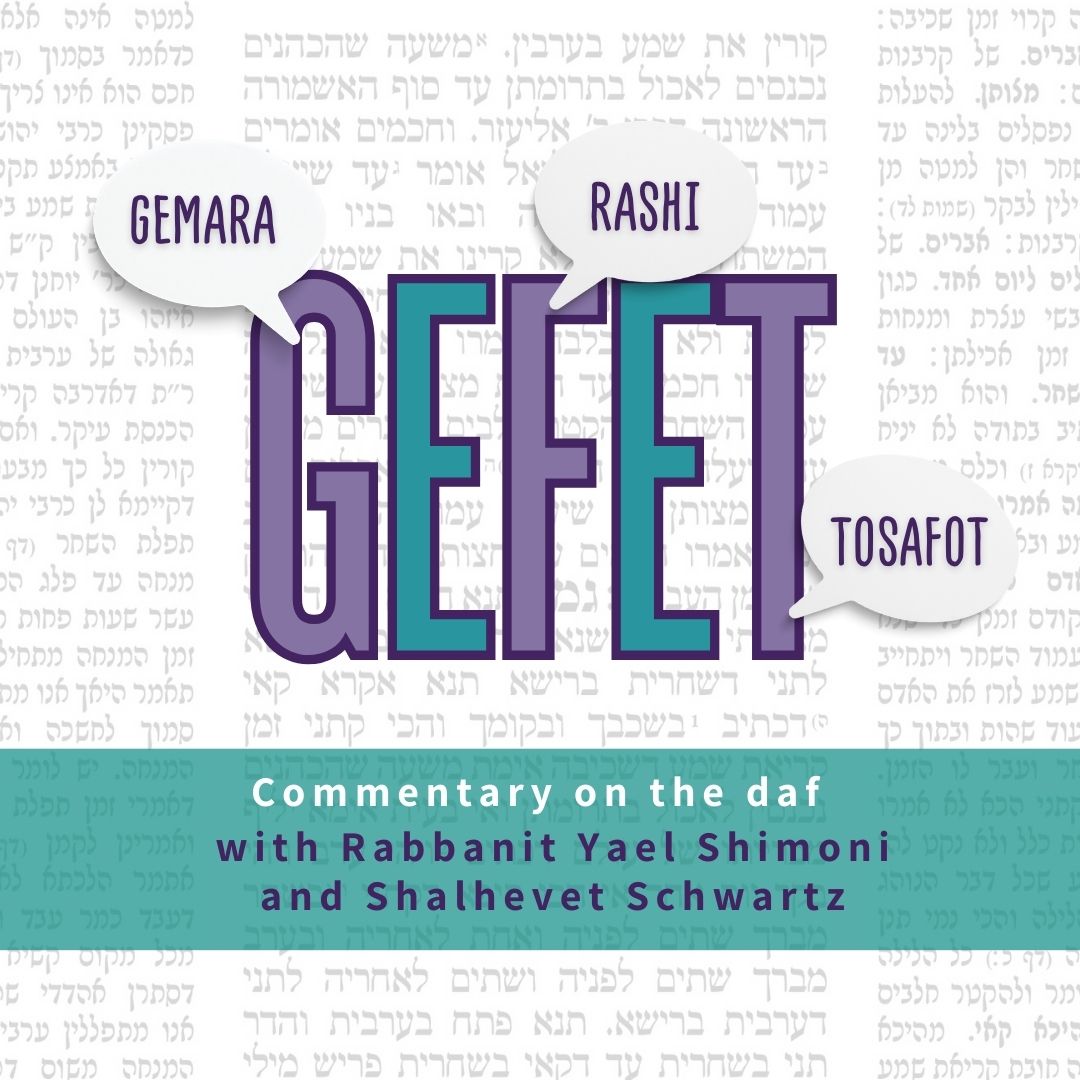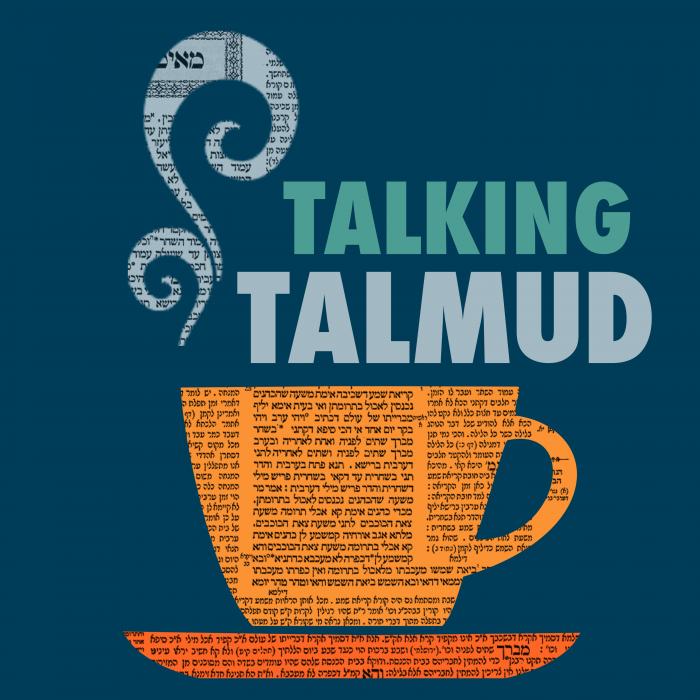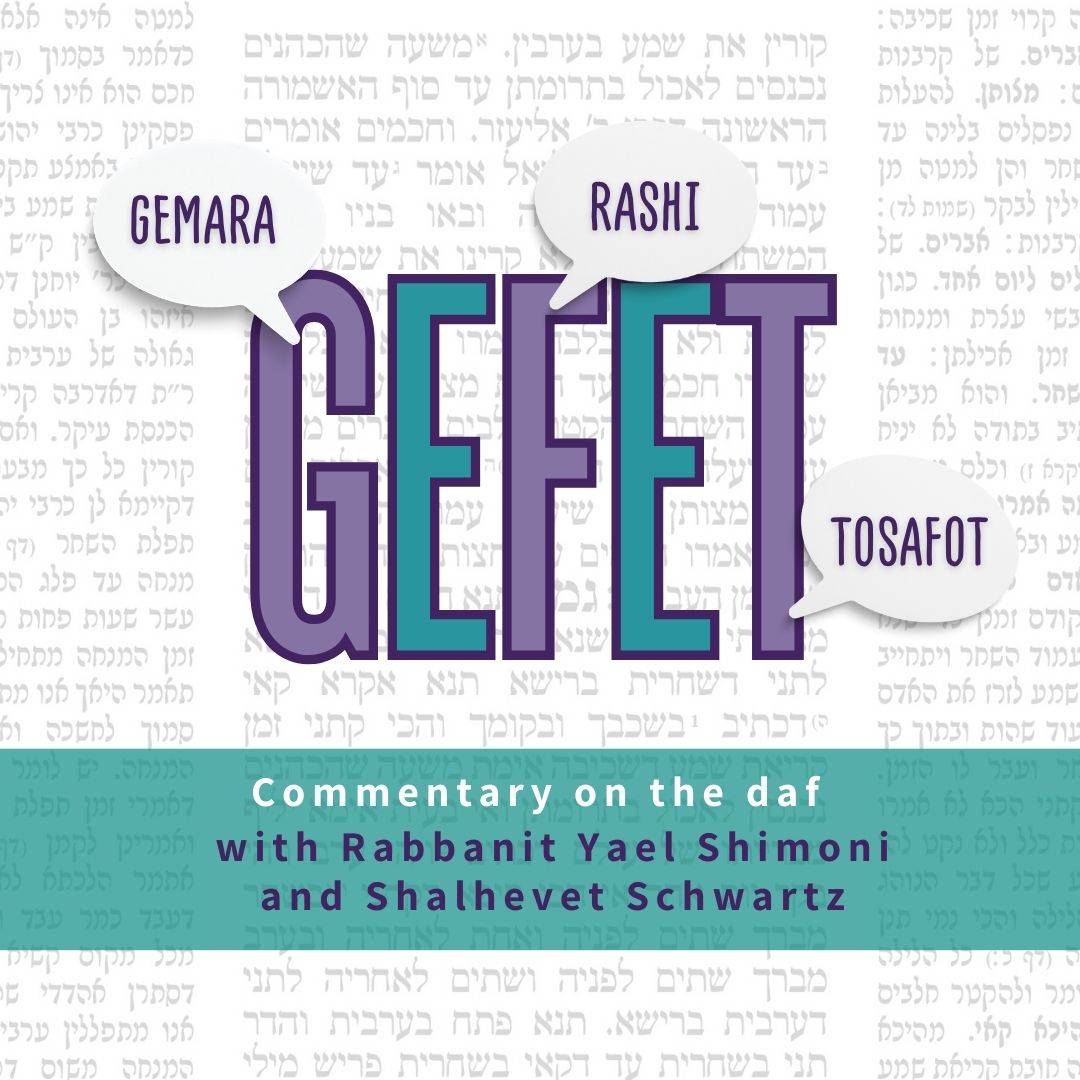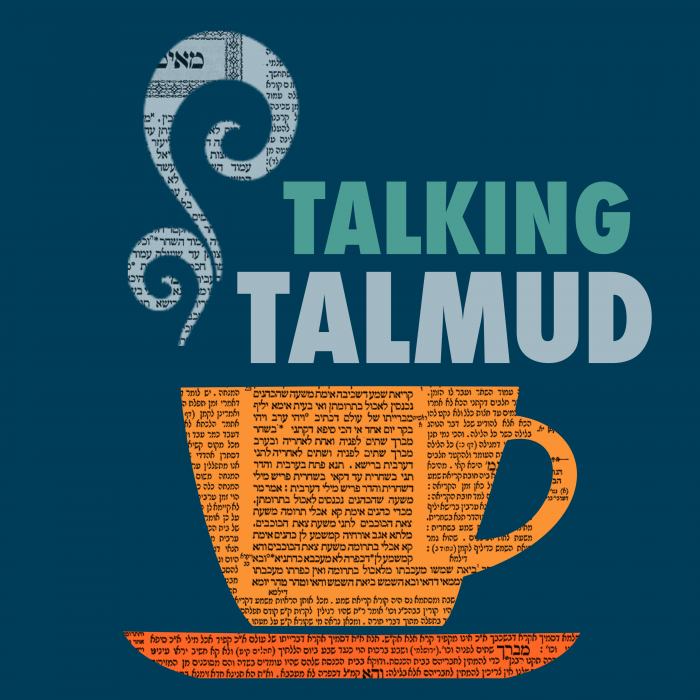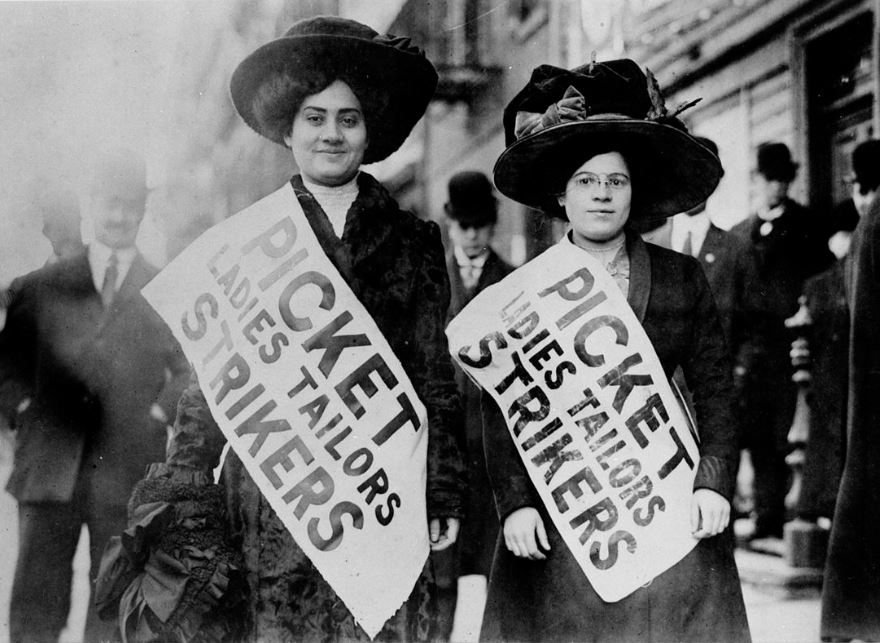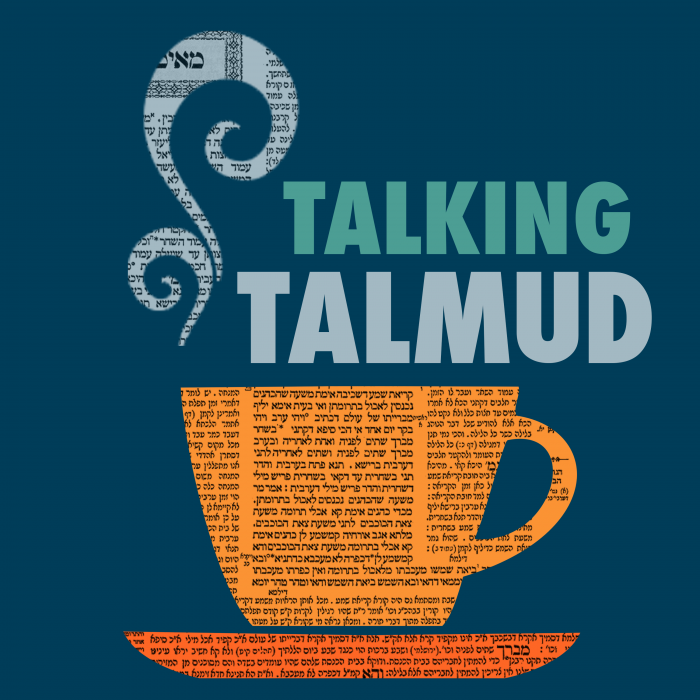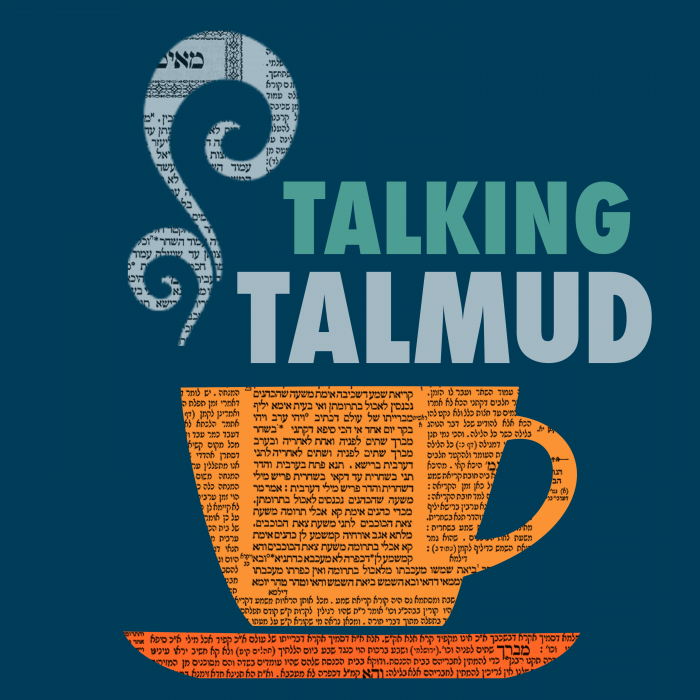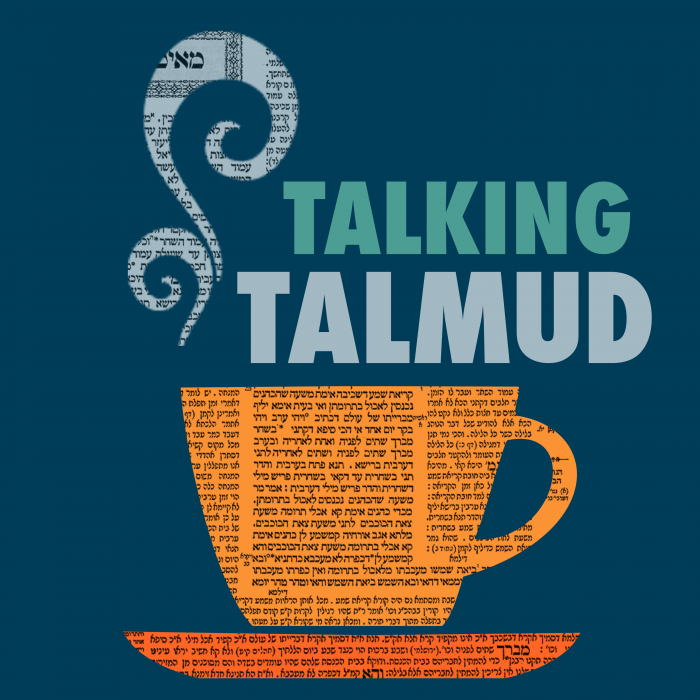Since Rabbi Yochanan explained the reason for the oaths in the Mishna is to prevent one from grabbing the tallit from the other, the Gemara continues to prove that if one can be believed to take an oath even if we are concerned they have stolen. The third attempt to prove this is from a statement of Rav Huna regarding a shomer who claims something happened to the item which would exempt the shomer, but he/she chooses to pay for the item. They take an oath, even though there is a concern that perhaps they want to keep the item for themselves. Again, this proof is rejected as the shomer pays money for the item and can therefore justify keeping the item. Three other oaths – shevuat heiset, a case with a shopkeeper and workers, and the oath taken by a shomer chinam who claims the item was last or stolen can all prove that even one who perhaps is lying is trusted to take an oath. Abaye brings an alternative explanation for the oaths in the Mishna as he does not hold that we can trust one who perhaps is stealing to take an oath. According to Abaye, the concern is that there is a doubt about whether one owes money to the other and therefore the creditor grabs the tallit as payment for the loan in question. Why is Abaye not concerned in that case as well for a false oath? Rabbi Zeira asks: if the two people were holding the tallit in the court and one grabbed it from the other, does the one now holding the entire tallit have full rights to it? In what exact case was this question asked? What are the arguments for and against? Assuming the one holding it gets to keep it, would the same hold true if one consecrated the whole tallit without having grabbed it since regarding consecration, speech is considered the same as pulling an object. To answer this question, the Gemara brings a story about a bathhouse that two people claimed rights to, and then one of them consecrated the bathhouse. Rav Hamnuna ruled that the consecration worked and learned it from a Mishna about a safek bechor but Raba rejected his proof. Rav Chanania brings proof from a braita for Raba’s explanation and Abaye first rejects the proof but then reinstates it.
Bava Metzia
Masechet Bava Metzia is sponsored by Rabbi Art Gould in memory of his beloved bride of 50 years, Carol Joy Robinson, Karina Gola bat Huddah v’Yehuda Tzvi.
רבות בנות עשו חיל ואת עלית על־כלנה
This week’s learning is sponsored for the merit and safety of Haymanut (Emuna) Kasau, who was 9 years old when she disappeared from her home in Tzfat two years ago, on the 16th of Adar, 5784 (February 25, 2024), and whose whereabouts remain unknown.
This week’s learning is dedicated of the safety of our nation, the soldiers and citizens of Israel, and for the liberation of the Iranian people. May we soon see the realization of “ליהודים היתה אורה ושמחה וששון ויקר”.
Want to dedicate learning? Get started here:


Today’s daily daf tools:
Bava Metzia
Masechet Bava Metzia is sponsored by Rabbi Art Gould in memory of his beloved bride of 50 years, Carol Joy Robinson, Karina Gola bat Huddah v’Yehuda Tzvi.
רבות בנות עשו חיל ואת עלית על־כלנה
This week’s learning is sponsored for the merit and safety of Haymanut (Emuna) Kasau, who was 9 years old when she disappeared from her home in Tzfat two years ago, on the 16th of Adar, 5784 (February 25, 2024), and whose whereabouts remain unknown.
This week’s learning is dedicated of the safety of our nation, the soldiers and citizens of Israel, and for the liberation of the Iranian people. May we soon see the realization of “ליהודים היתה אורה ושמחה וששון ויקר”.
Today’s daily daf tools:
Delve Deeper
Broaden your understanding of the topics on this daf with classes and podcasts from top women Talmud scholars.
New to Talmud?
Check out our resources designed to help you navigate a page of Talmud – and study at the pace, level and style that fits you.
The Hadran Women’s Tapestry
Meet the diverse women learning Gemara at Hadran and hear their stories.
Bava Metzia 6
וְאֶלָּא הָא דְּאָמַר רַב נַחְמָן מַשְׁבִּיעִין אוֹתוֹ שְׁבוּעַת הֶיסֵּת, נֵימָא מִיגּוֹ דַּחֲשִׁיד אַמָּמוֹנָא חֲשִׁיד אַשְּׁבוּעָתָא.
The Gemara asks: But if one who is suspected of theft cannot be administered an oath, that which Rav Naḥman says, that when a person denies a debt entirely the judges administer an oath of inducement to him, is difficult. Let us say that since he is suspect with regard to financial dishonesty, he is suspect with regard to taking an oath.
וְתוּ הָא דְתָנֵי רַבִּי חִיָּיא: שְׁנֵיהֶם נִשְׁבָּעִין וְנוֹטְלִין מִבַּעַל הַבַּיִת, נֵימָא מִיגּוֹ דַּחֲשִׁיד אַמָּמוֹנָא חֲשִׁיד אַשְּׁבוּעָתָא.
And furthermore, that which Rabbi Ḥiyya teaches in a baraita with regard to the case of the storekeeper and the laborer (see 3a), that both parties take an oath and take payment from the employer, is also difficult. Let us say there, too, that since he is suspect with regard to financial dishonesty, he is suspect with regard to taking an oath.
וְתוּ הָא דְּאָמַר רַב שֵׁשֶׁת, שָׁלֹשׁ שָׁבוּעוֹת מַשְׁבִּיעִין אוֹתוֹ: שְׁבוּעָה שֶׁלֹּא פָּשַׁעְתִּי בָּהּ, שְׁבוּעָה שֶׁלֹּא שָׁלַחְתִּי בָּהּ יָד, שְׁבוּעָה שֶׁאֵינָהּ בִּרְשׁוּתִי. נֵימָא: מִיגּוֹ דַּחֲשִׁיד אַמָּמוֹנָא חֲשִׁיד אַשְּׁבוּעָתָא.
And furthermore, with regard to that which Rav Sheshet says: The judges administer three oaths to an unpaid bailee who claims that the deposit with which he was entrusted was stolen: I hereby take an oath that I was not negligent in safeguarding it; I hereby take an oath that I did not misappropriate the deposit; and I hereby take an oath that it is no longer in my possession, there is the same difficulty. Since the court raises these suspicions against the bailee, let us say that since he is suspected of financial dishonesty, he is suspected with regard to taking an oath. How can the court administer these oaths?
אֶלָּא לָא אָמְרִינַן מִיגּוֹ דַּחֲשִׁיד אַמָּמוֹנָא חֲשִׁיד אַשְּׁבוּעָתָא.
Rather, the conclusion from all of the above is that we do not say that since one is suspected of financial dishonesty, he is suspected with regard to taking an oath.
אַבָּיֵי אָמַר: חָיְישִׁינַן שֶׁמָּא מִלְוֶה יְשָׁנָה יֵשׁ לוֹ עָלָיו.
Abaye said: There is no proof from the three halakhot cited above that an oath is administered to one who is suspect with regard to financial dishonesty, as it can be explained that the reason the oath is administered in these cases is that we suspect that perhaps the defendant has an old loan that he lent to the plaintiff, and he has been unable to get his money back. He is therefore withholding or claiming ownership of the item or money of the plaintiff as repayment of the loan and not as an act of outright robbery. Therefore, an oath is administered to him.
אִי הָכִי נִשְׁקוֹל בְּלָא שְׁבוּעָה!
The Gemara asks: If so, why does he take an oath in these cases? Let him take the item or money without taking an oath, as perhaps he is withholding it as repayment for an old loan, in which case the oath will not determine the truth in the dispute at hand.
אֶלָּא חָיְישִׁינַן שֶׁמָּא סְפֵק מִלְוֶה יְשָׁנָה יֵשׁ לוֹ עָלָיו.
Rather, Abaye’s suggestion should be understood as follows: We suspect that perhaps he is uncertain as to whether he has an old loan that he lent to the plaintiff. The defendant is unsure whether the plaintiff owes him money and is withholding the item just in case.
וְלָאו אָמְרִינַן תָּפֵיס מָמוֹנָא מִסְּפֵיקָא? מִשְׁתְּבַע נָמֵי מִסָּפֵק!
The Gemara asks: But why don’t we say in this case that if the defendant is capable of seizing another person’s property due to an uncertain debt, he may also take an oath falsely due to that same uncertainty? How is the oath administered to him?
אָמַר רַב שֵׁשֶׁת בְּרֵיהּ דְּרַב אִידִי: פָּרְשִׁי אִינָשֵׁי מִסְּפֵק שְׁבוּעָה וְלָא פָּרְשִׁי מִסְּפֵק מָמוֹנָא. מַאי טַעְמָא? מָמוֹן אִיתֵיהּ בַּחֲזָרָה, שְׁבוּעָה לֵיתֵיהּ בַּחֲזָרָה.
Rav Sheshet, son of Rav Idi, said: People refrain from taking an oath about which they are uncertain but do not refrain from seizing property about which they are uncertain. What is the reason for this? People reason that property can be returned, but an oath cannot be retracted. If it is proven that his seizure of the property was unjustified, the defendant can return it. By contrast, once he takes a false oath, there is no remedy for the situation. Therefore, one is more cautious when taking an oath than when seizing property.
בָּעֵי רַבִּי זֵירָא: תְּקָפָהּ אֶחָד בְּפָנֵינוּ, מַהוּ?
§ Rabbi Zeira raises a dilemma: If two people together had a garment in their grasp and one of them seized it in its entirety from the grasp of the other in our presence, i.e., before the court, what is the halakha?
הֵיכִי דָמֵי? אִי דְּשָׁתֵיק, אוֹדוֹיֵי אוֹדִי לֵיהּ. וְאִי דְּקָא צָוַוח, מַאי הֲוָה לֵיהּ לְמֶעְבַּד?
The Gemara asks: What are the circumstances? If the one from whom it was seized remained silent, his silence indicates that he admits to the one who seized it from him that he is the owner. And if he shouted in protest at the seizure, what more should he have done? The fact that the other person is stronger than him is irrelevant as far as determining legal ownership of the garment is concerned.
לָא צְרִיכָא דִּשְׁתֵיק מֵעִיקָּרָא וַהֲדַר צָוַוח, מַאי? מִדְּאִשְׁתִּיק – אוֹדוֹיֵי אוֹדִי לֵיהּ, אוֹ דִלְמָא: כֵּיוָן דְּקָא צָוַוח הַשְׁתָּא אִיגַּלַּאי מִילְּתָא דְּהַאי דִּשְׁתֵיק מֵעִיקָּרָא, סָבַר: הָא קָא חָזוּ לֵיהּ רַבָּנַן.
The Gemara explains: No, it is necessary to raise this dilemma in a case where he was silent initially, when the other litigant seized the garment, and he later shouted. What is the halakha? Is there an assumption that since he was initially silent, he admitted to the one who seized it from him that in seizing it the litigant became the owner, and it was only later that he regretted doing so and shouted? Or perhaps, since he is shouting now about the injustice that was done to him, the matter is revealed that the fact that he was silent initially was because he thought: The Rabbis of the court saw him grab it from me, so there is no need to cry out.
אָמַר רַב נַחְמָן, תָּא שְׁמַע: בַּמֶּה דְּבָרִים אֲמוּרִים שֶׁשְּׁנֵיהֶם אֲדוּקִין בָּהּ, אֲבָל הָיְתָה טַלִּית יוֹצֵאת מִתַּחַת יָדוֹ שֶׁל אֶחָד מֵהֶן, הַמּוֹצִיא מֵחֲבֵירוֹ עָלָיו הָרְאָיָה. הֵיכִי דָמֵי? אִי נֵימָא כִּדְקָתָנֵי, פְּשִׁיטָא! אֶלָּא שֶׁתְּקָפָהּ אֶחָד בְּפָנֵינוּ.
Rav Naḥman says: Come and hear a solution to the dilemma from what was taught in a baraita: In what case is this statement said that both of them take an oath and each receives half of the garment? It is said in a case where both of them are still holding the garment. But if the garment was in the possession of only one of them, the burden of proof rests upon the claimant, i.e., the one not holding the garment. In the absence of proof, the item remains in the possession of the one holding the garment. The Gemara asks: What are the circumstances of this case? If we say that it is to be understood as it is taught, it is obvious that one who claims an item that is in another’s possession must bring proof to support his claim. Rather, it must be referring to a case where one of them seized it in our presence, which is the case to which Rabbi Zeira referred.
לָא, הָכָא בְּמַאי עָסְקִינַן – כְּגוֹן דְּאָתוּ לְקַמַּן כְּדִתְפִיסוּ לַהּ תַּרְוַיְיהוּ, וְאָמְרִינַן לְהוּ: זִילוּ פְּלוּגוּ, וּנְפַקוּ, וַהֲדַר אֲתוֹ כִּי תָּפֵיס לַהּ חַד מִינַּיְיהוּ, הַאי אֲמַר: אוֹדוֹיֵי אוֹדִי לִי. וְהַאי אֲמַר: בִּדְמֵי אֹגַרְתִּי נִיהֲלֵיהּ, דְּאָמְרִינַן לֵיהּ: עַד הַשְׁתָּא חָשְׁדַתְּ לֵיהּ בְּגַזְלָן, וְהַשְׁתָּא מוֹגְרַת לֵיהּ בְּלָא סָהֲדִי.
The Gemara rejects this proof: No, it is possible that here we are dealing with a case where they came before us, the court, while both were holding the garment, and we said to them: Go divide the garment, and they left the court and afterward came back while one of them was holding it. This one, who was holding the garment, said: The other one admitted to me that I was justified in my claim. And that one, who was not holding the garment, said: I rented half of the garment to him for money and did not relinquish my right to it. In this case the latter person’s claim is not accepted, as we say to him: Until now you suspected him of being a robber, claiming that he took from you an item that you found, and now you rented it to him without witnesses? Therefore, the burden of proof rests upon the one who is not holding the garment.
וְאִיבָּעֵית אֵימָא, כִּדְקָתָנֵי: דְּאָתוּ לְקַמַּן כִּי תָּפֵיס לַהּ חַד מִינַּיְיהוּ, וְאִידַּךְ מְסָרֵךְ בָּהּ סָרוֹכֵי, וַאֲפִילּוּ לְסוֹמְכוֹס דְּאָמַר מָמוֹן הַמּוּטָּל בְּסָפֵק חוֹלְקִין בְּלֹא שְׁבוּעָה, מוֹדֶה סוֹמְכוֹס דְּסִרְכָא לָאו כְּלוּם הִיא.
And if you wish, say instead that it is possible to understand the case in the baraita as it is taught, i.e., they came before us while only one of them was holding the garment itself, but the other was hanging on to the edge of the garment. And the baraita teaches that even according to Sumakhos, who says that in a case of property of uncertain ownership the parties divide it without an oath, in this case Sumakhos concedes that hanging on to the edge is worth nothing. It does not render the ownership of the garment uncertain, and therefore the burden of proof rests upon the claimant, i.e., one who is hanging on to the edge.
אִם תִּמְצֵי לוֹמַר תְּקָפָהּ אֶחָד בְּפָנֵינוּ מוֹצִיאִין אוֹתָהּ מִיָּדוֹ, הִקְדִּישָׁה – אֵינָהּ מְקוּדֶּשֶׁת. אִם תִּמְצֵי לוֹמַר תְּקָפָהּ אֶחָד בְּפָנֵינוּ אֵין מוֹצִיאִין אוֹתָהּ מִיָּדוֹ, הִקְדִּישָׁהּ בְּלֹא תְּקָפָהּ – מַהוּ?
Rabbi Zeira’s dilemma was not resolved, but the Gemara states a related halakha: If you say that if one seizes the garment in our presence the court removes it from his possession, then if either of the parties consecrated the entire garment to the Temple treasury, the consecration is not valid, as it is not his. But if you say that if one seizes the garment in our presence the court does not remove it from his possession, then if one of them consecrated the entire garment to the Temple treasury without seizing it, what is the halakha?
כֵּיוָן דְּאָמַר מָר: אֲמִירָתוֹ לַגָּבוֹהַּ כִּמְסִירָתוֹ לַהֶדְיוֹט דָּמֵי. כְּמַאן דְּתַקְפַהּ דָּמֵי.
The two sides of this dilemma are as follows: Since the Master said a principle with regard to the halakhot of transactions that a declaration to the Most High is equivalent to a transfer to an ordinary person, i.e., verbal consecration of an item is equivalent to a formal act of acquisition in a non-sacred transaction, is the one who consecrated the garment therefore considered like one who seized it, and consequently the consecration takes effect?
אוֹ דִלְמָא: הַשְׁתָּא מִיהָא הָא לָא תַּקְפַהּ, וּכְתִיב: ״וְאִישׁ כִּי יַקְדִּישׁ אֶת בֵּיתוֹ קֹדֶשׁ וְגוֹ׳״, מָה בֵּיתוֹ בִּרְשׁוּתוֹ – אַף כֹּל בִּרְשׁוּתוֹ, לְאַפּוֹקֵי הַאי דְּלֹא בִּרְשׁוּתוֹ.
Or perhaps the consecration does not take effect, as now, in any event, he did not actually seize the garment and it is not his? And it is written: “And when a man shall sanctify his house to be sacred unto God” (Leviticus 27:14), from which the Sages derive: Just as his house is in his possession, so too, anything that one wishes to consecrate must be in his possession, to the exclusion of this garment, which is not in his possession, as he did not actually seize it, and therefore the consecration does not take effect.
תָּא שְׁמַע: דְּהָהִיא
The Gemara attempts to answer the question: Come and hear proof from an incident that transpired, as there was a certain
מַסּוּתָא דַּהֲווֹ מִנְּצוּ עֲלַהּ בֵּי תְרֵי, הַאי אָמַר דִּידִי הוּא וְהַאי אָמַר דִּידִי הוּא. קָם חַד מִינַּיְיהוּ אַקְדְּשַׁהּ. פָּרְשִׁי מִינַּהּ רַב חֲנַנְיָה וְרַב אוֹשַׁעְיָא וְכוּלְּהוּ רַבָּנַן. וַאֲמַר לֵיהּ רַב אוֹשַׁעְיָא לְרַבָּה: כִּי אָזְלַתְּ קַמֵּיהּ דְּרַב חִסְדָּא לְכַפְרִי, בְּעִי מִינֵּיהּ.
bathhouse over which two people were arguing, and of which neither of them were in possession. This one said: It is mine, and that one said: It is mine. One of them arose and consecrated the bathhouse. Rav Ḥananya and Rav Oshaya and all the Rabbis kept away from the bathhouse and refrained from bathing there lest they transgress the prohibition against misusing consecrated property, as they were uncertain whether this act of consecration took effect. And Rav Oshaya said to Rabba: When you go to study before Rav Ḥisda in the town of Kafrei, ask him what we should do in this case.
כִּי אֲתָא לְסוּרָא, אֲמַר לֵיהּ רַב הַמְנוּנָא: מַתְנִיתִין הִיא. סְפֵק בְּכוֹרוֹת, אֶחָד בְּכוֹר אָדָם וְאֶחָד בְּכוֹר בְּהֵמָה, בֵּין טְהוֹרִים בֵּין טְמֵאִים: הַמּוֹצִיא מֵחֲבֵירוֹ עָלָיו הָרְאָיָה. וְתָנֵי עֲלַהּ: אֲסוּרִים בְּגִיזָה וּבַעֲבוֹדָה.
When on his way to Kafrei, Rabba came to the city of Sura and related the incident to the Sages there. Rav Hamnuna said to him: The resolution to your dilemma is found in the following mishna (Teharot 4:12): If there is uncertainty with regard to firstborns, whether a human firstborn or an animal firstborn, whether with regard to kosher animals or non-kosher animals, i.e., the firstborn of a donkey, the burden of proof rests upon the claimant. The priest may not take the animal from its owner, or the redemption payment from the child’s father. And it is taught in that regard in a baraita: One is nevertheless prohibited from shearing and from working such animals, as their status as firstborns is uncertain.
וְהָא הָכָא דְּאָמַר תְּקָפוֹ כֹּהֵן – אֵין מוֹצִיאִין אוֹתוֹ מִיָּדוֹ, דְּקָתָנֵי הַמּוֹצִיא מֵחֲבֵירוֹ עָלָיו הָרְאָיָה, וְכִי לֹא תְּקָפוֹ – אֲסוּרִין בְּגִיזָּה וּבַעֲבוֹדָה.
Rav Hamnuna continued: And here, where the mishna effectively says that if a priest forcefully seized an animal whose status as firstborn is uncertain the court does not remove it from his possession, as it teaches that the burden of proof rests upon the claimant, the baraita states that even when the priest did not seize it, one is prohibited from shearing and working it. Evidently, the fact that the priest would remain in possession of the animal were he to seize it suffices to accord consecrated status to the animal even in a case where the priest did not seize it. The same is true in the case of the bathhouse, that even though the one who consecrated it had not taken possession of it, his consecration takes effect.
אֲמַר לֵיהּ רַבָּה: קְדוּשַּׁת בְּכוֹר קָאָמְרַתְּ – לְעוֹלָם אֵימָא לָךְ תְּקָפוֹ כֹּהֵן מוֹצִיאִין אוֹתוֹ מִיָּדוֹ, וַאֲפִילּוּ הָכִי אֲסוּרִים בְּגִיזָּה וּבַעֲבוֹדָה, דִּקְדוּשָּׁה הַבָּאָה מֵאֵלֶיהָ שָׁאנֵי.
Rabba said to him: This is no proof, as the cases are not comparable. You say a ruling concerning the sanctity of a firstborn. Actually, I will say to you with regard to an animal whose status as firstborn is uncertain, if a priest seized it, the court removes it from his possession, as there is no validity to ownership acquired by force. Accordingly, when the mishna states that the burden of proof rests upon the claimant, it means that the priest must bring proof that the animal is a firstborn. And nevertheless, one is prohibited from shearing and from working such an animal, as sanctity that emerges by itself is different. The sanctity of a firstborn does not result from an act of consecration; rather, the firstborn is consecrated by itself at birth. Therefore, the uncertainty with regard to its sanctity is intrinsic, and one is prohibited from using the animal as long as the uncertainty exists.
אֲמַר לֵיהּ רַב חֲנַנְיָה לְרַבָּה, תַּנְיָא דִּמְסַיַּיע לָךְ: הַסְּפֵיקוֹת נִכְנָסִין לַדִּיר לְהִתְעַשֵּׂר.
Rav Ḥananya said to Rabba: A halakha is taught in a baraita that supports your opinion that if a priest seizes an animal whose status as firstborn is uncertain, the court removes it from his possession: The animals whose status as firstborn is uncertain enter the pen to be tithed. They are brought in together with the rest of the young animals from whom the animal tithe is separated. This is so despite the fact that the halakhot of animal tithe do not apply to a firstborn animal.
וְאִי סָלְקָא דַעְתָּךְ תְּקָפוֹ כֹּהֵן אֵין מוֹצִיאִין אוֹתוֹ מִיָּדוֹ, אַמַּאי נִכְנָסִין לַדִּיר? נִמְצָא זֶה פּוֹטֵר מָמוֹנוֹ בְּמָמוֹנוֹ שֶׁל כֹּהֵן!
And if it enters your mind to say that in the case of an animal whose status as firstborn is uncertain that is seized by a priest, the court does not remove it from his possession, why do these animals enter the pen? Isn’t this a case of the owner exempting his property from the animal tithe with the property of a priest? If the animal belongs to the priests, it cannot be used as a tithe since one is obligated to separate the animal tithe from one’s own animals.
אֲמַר לֵיהּ אַבָּיֵי: אִי מִשּׁוּם הָא לָא תְּסַיְּיעֵיהּ לְמָר, הָכָא בְּמַאי עָסְקִינַן – כְּגוֹן דְּלֵית לֵיהּ אֶלָּא תִּשְׁעָה, וְהוּא דְּמָה נַפְשָׁךְ: אִי בַּר חִיּוּבָא הוּא, שַׁפִּיר קָא מְעַשַּׂר. אִי לָאו בַּר חִיּוּבָא הוּא, תִּשְׁעָה לָאו בַּר עַשּׂוֹרֵי נִינְהוּ.
Abaye said to him: If your support for Rabba’s opinion is due to that baraita, it does not support the Master. Here, we are dealing with a case where the owner has only nine animals and it, the animal whose status as firstborn is uncertain. Since whichever way you look at it, the owner of the animals is exempt: If that animal is not a firstborn, it belongs to the owner and is subject to the obligation to be tithed as part of a group of ten animals, and the owner tithes properly. And if the animal is a firstborn, it belongs to the priests and the animals are not subject to the obligation to be tithed, since the nine animals belonging to an owner are not subject to tithing.
הֲדַר אָמַר אַבָּיֵי: לָאו מִילְּתָא הִיא דְּאָמְרִי דִּסְפֵיקָא לָאו בַּר עַשּׂוֹרֵי הִיא, דִּתְנַן: קָפַץ אֶחָד מִן הַמְּנוּיִין לְתוֹכָן – כּוּלָּן פְּטוּרִין.
Abaye then said: That which I said is not correct, as, contrary to what I said, an animal whose status as firstborn is uncertain is not subject to tithing, as we learned in a mishna (Bekhorot 58b): If before one completed tithing his animals, one of those already counted jumped back into the pen among the animals that were not yet counted, all those in the pen are exempt from the obligation to be tithed, because each of them could be the animal that was already counted.
וְאִי סָלְקָא דַּעְתָּךְ סְפֵיקָא בָּעֵי עַשּׂוֹרֵי, לְעַשֵּׂר מִמָּה נַפְשָׁךְ: דְּאִי בַּר חִיּוּבָא הוּא – שַׁפִּיר מְעַשַּׂר, וְאִי לָאו בַּר חִיּוּבָא הוּא – נִפְּטַר בְּמִנְיָן הָרָאוּי.
And if it enters your mind that an animal whose status as firstborn is uncertain requires tithing, let him tithe the remaining animals, as whichever way you look at it, his tithing would be effective. Because if this group of ten emerging now renders the owner obligated in the animal tithe, he is tithing properly. And if it does not render the owner obligated in the animal tithe, as one of the ten is the animal that was previously counted, nevertheless, each of the other nine is exempt from animal tithe due to the principle of a tally fit to reach ten.
דְּאָמַר רָבָא: מִנְיָן הָרָאוּי פּוֹטֵר.
This principle is as Rava says: A tally fit to reach ten exempts oneself from the obligation to tithe. If one began counting animals for the purpose of tithing and when he began the tally the group was fit to be tithed, but ultimately he was unable to separate the tithe, for example, because one of the animals died and there were only nine left, those that were counted while the tally was fit to reach ten are exempt from the requirement of animal tithe, and the owner is not required to include them in the tithe the following year. Similarly, in a case where one of the ten animals was already counted, the other nine are nevertheless exempted by this count, as while he was counting them, the tally was fit to reach ten.


